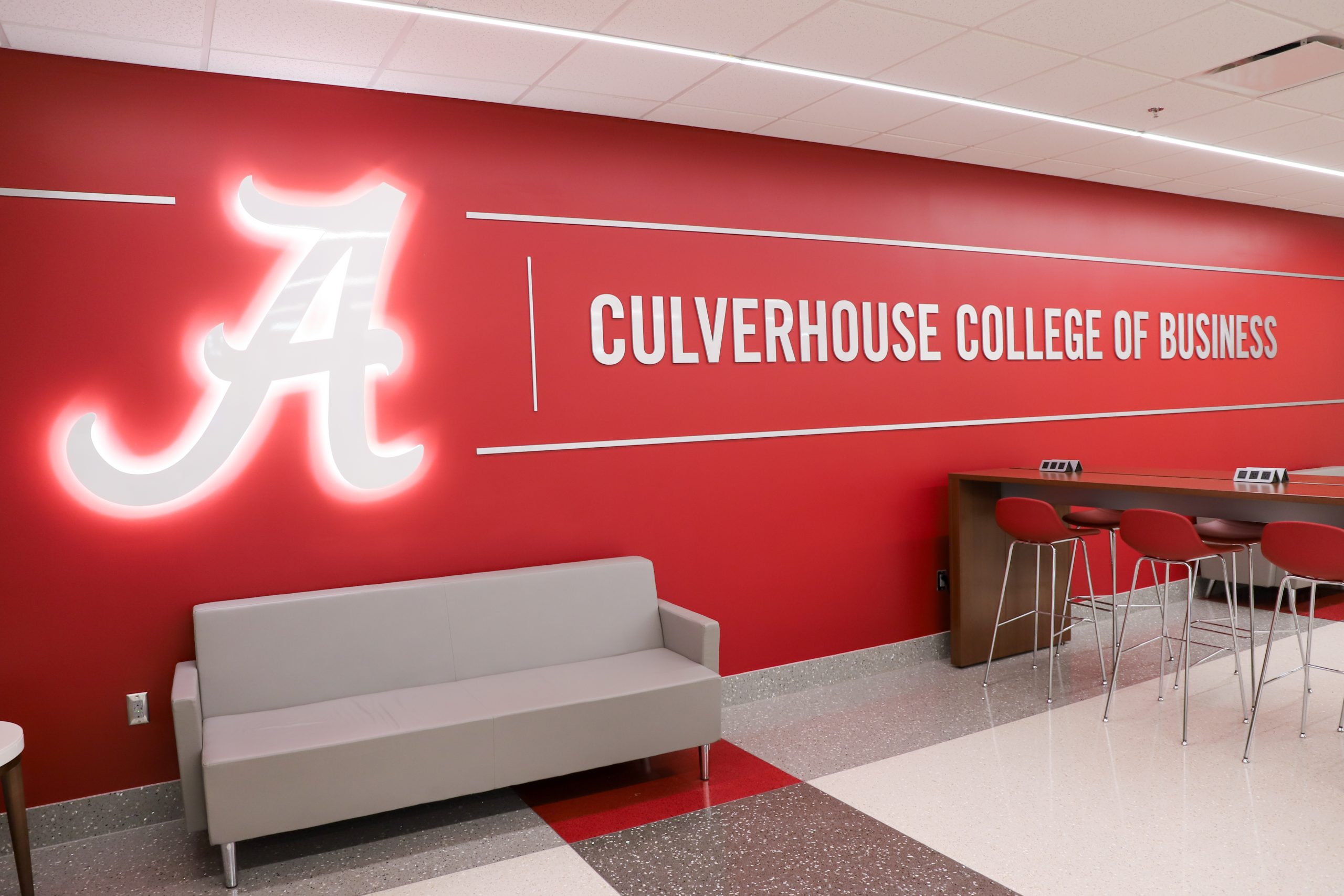
Artificial intelligence is revolutionizing the business world by enabling us to analyze vast amounts of data, uncover insights, and solve complex problems with unprecedented speed and accuracy.
At the Culverhouse College of Business, our faculty and students are at the cutting edge of AI and machine learning, integrating these technologies into research and education to drive innovation across various business disciplines. From optimizing operations to enhancing customer experiences, our AI initiatives are transforming industries and setting new standards for business excellence.
To spearhead the forefront of AI and machine learning integration in research and education, catalyzing industry transformation with pioneering insights and establishing new benchmarks for business excellence in an era driven by data-driven innovation.
Elevating AI awareness and preparedness, Culverhouse College of Business drives innovative research, delivers comprehensive educational programs, and enhances teaching methodologies to empower the University of Alabama community with the expertise and tools necessary to excel in an AI-driven world.
At Culverhouse, faculty members bring expertise and leadership to AI research, driving groundbreaking initiatives that advance understanding and application in business contexts. Our research fosters collaboration among UA faculties, industry experts, and graduate students, enabling them to develop essential skills in leveraging advanced technologies and shaping the future of business innovation.
increase in job listings seeking AI skills from 2022 to the second quarter of 2023
of educators believe AI will negatively impact teaching and learning in the next five years
At Culverhouse, faculty members bring expertise and leadership to AI research, driving groundbreaking initiatives that advance understanding and application in business contexts. Our research fosters collaboration among UA faculties, industry experts, and graduate students, enabling them to develop essential skills in leveraging advanced technologies and shaping the future of business innovation.
Justin DeSimone – Presentation for the Research Methods Faculty Network of the Consortium for the Advancement of Research Methods and Analysis (CARMA)
Justin DeSimone – Panelist for a symposium at the 83rd meeting of the Academy of Management. Boston, MA
Abhi Bhattacharya, Bryan Hochstein and Clay Voorhees – Online chat interfaces and sales support agents have captured the attention of brands and consumers. Improvements in natural language processing have also created a fertile ground for analyzing such conversations across business sectors. While extant research – both academic and managerial – largely concentrates on understanding how to drive traffic to a company’s website, few studies have examined how to qualify leads derived from online chats for salesperson follow-up. This gap leaves an important topic unaddressed, as salespeople rarely have sufficient time or resources to rationally select the best leads to pursue. As a result, customer acquisition is often based on arbitrary decisions and gut feelings – leading to a waste of time and money chasing irrelevant leads. Our research fills this gap by employing an AI-based (BART) textual analysis of online conversations between leads and agents, showing patterns between those leads that converted to sales and those that did not. By analyzing conversational data, our research develops a list of emergent themes and tests them to evaluate which themes are indicative of a future sale and profit. These findings contribute insights to both theory and practice.
Das, S., Taer, H., and Sharma, P.N. “ChatGPT in Academia: Students Information Collection and Validation Strategies,” Proceedings of the Americas Conference on Information Systems, Salt Lake City, UT, (2024).
increase in job listings seeking AI skills from 2022 to the second quarter of 2023
of educators believe AI will negatively impact teaching and learning in the next five years
Steve Buchheit and Troy Pollard – AI can open educational opportunities that we previously considered impossible. AI can be productively used to “turnaround grading” on complex tasks with high-quality feedback in a relatively short period of time. Philosophically, we view generative AI as a tool.[1] Like others currently using generative AI, we find that leveraging AI allows us to provide in-depth feedback efficiently. To outline the process for term paper grading, understand that “using generative AI” assumes the fixed investment of creating a “model” will be offset by the benefit of “feeding a large number of subsequent papers through the model.” To illustrate, our sample evidence comes from a graduate class of 76 students with term-ending projects. We emphasize that from an instructor’s perspective, AI is “grade assisting,” not actually grading assignments that deal with subjective concepts. Loosely speaking, AI “changes the task” from a relatively tedious process of reading identical papers into one where the instructor creates and evaluates a limited number of cases while training a “model” to assess the remaining papers. AI provides feedback in the form of relative differences from the “model.” Human instructor judgment is needed to weigh “factors of difference” and ultimately determine the final grades.
AI market size is expected to reach $407 billion by 2027 (Marketsandmarkets)
AI will have an estimated 21% net increase on the United States GDP by 2030 (Statista)
Research estimates AI will create 97 million jobs (WeForum)
AI tech can increase revenue by over $15 trillion by the end of the decade (PwC)
of businesses expect AI to increase productivity
Forbes Advisor, 2023
This website uses cookies to collect information to improve your browsing experience. Please review our Privacy Statement for more information.